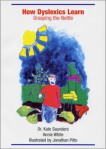There is something that we can all do right now to help prevent further suicides, and to support people going through depression (as well as reducing violence generally). It doesn’t cost anything, and every single one of us can contribute at an individual, community, national, and international level. It doesn’t require specialist training, and it is so simple that many people have no inkling of how powerful it is.
‘What is this amazing and powerful tool?’, I hear you ask. It is the words and language that we use with ourselves, and with others. You know the feeling of heaviness as you hear a phrase like, ‘You should do that’, or ‘What you need is to …’; or when you think to yourself, ‘I am depressed’ or ‘I have depression’; or every time you use a word like ‘anxiety’. This kind of language weighs us down, and prevents recovery to our normal happy resilient selves.
I’d like to suggest a few alternatives that are not as widely used yet – I have great hope that they will become the norm very soon. Here are 3 things to make life easier for everyone – have fun playing with them:
- Firstly, use the verb ‘doing’ instead of ‘having’ or ‘being’ – this creates a temporariness to the state, which lightens the impact of the words, and creates more feeling of having choice. Just try saying to yourself, “I’m doing frustration/annoyed/confused/non-calm” (at the moment/right now)”. Notice how this feels lighter, and has more potential for change :).
- Secondly, start removing non-useful words from your language, such as ‘should, have to, must, need to, and ought to’. These words weigh heavily on our shoulders when we use them internally, externally, or receive them from others. So instead of “I should do it”, try saying “I am (not) going to do it”; instead of “I should have done it”, try saying “I did/didn’t do it”. Instead of “I must”, try saying “I choose (not) to do this because it is (not) valuable/useful for me (or because I can see how valuable it is for you)”. This is just a simple overview, but I’m sure you get the picture :).
- Thirdly, using more positive language by changing words like anxiety to non-calm, useless to non-useful, depression to non-contentment, etc. The more you do this, the better you will feel :).
Finally, a quick note, to quote what Phil Parker (PPTI) says – people are naturally geniuses. People who do procrastination or depression (or non-contentment) really well are geniuses at it. People doing anxiety (or non-calm) who have panic attacks are also geniuses at what they are doing. I used to be a genius at food intolerances, and pretty highly skilled at anxiety and at hiding it well, too. We are all geniuses at whatever we are doing to a high level. Therefore, if we can take that ability and commitment, and those skills and apply them to something more useful, that would be pretty awesome, wouldn’t it :). A great first step forward can be to realise and acknowledge this.
Whilst these suggestions are only part of the solution, they constitute a fundamental shift in how we communicate to a way that is far more positive and empowering, and can change systems from within. One of the most important aspects for me is that we ALL have the ability to contribute in this way, rather than standing on the sidelines waiting for something to happen.


 “By dyslexics for dyslexics of all ages, this is the first book on the subject which one can honestly say is without fault. Not a word of patronage, jargon, rubbish statistics, or repetition of things everyone has heard many times before. Above all, it shows the learning process from what it truly is – fun!” Susan Parkinson, Arts Dyslexia Trust.
“By dyslexics for dyslexics of all ages, this is the first book on the subject which one can honestly say is without fault. Not a word of patronage, jargon, rubbish statistics, or repetition of things everyone has heard many times before. Above all, it shows the learning process from what it truly is – fun!” Susan Parkinson, Arts Dyslexia Trust.